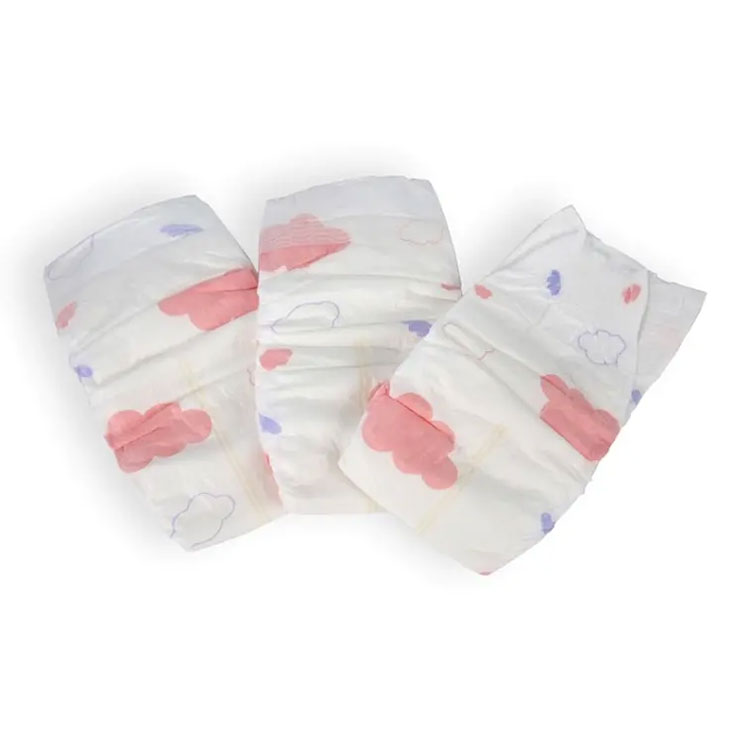Dispelling Myths: Debunking Common Misconceptions About Organic Infant Diapers
2024-03-06
In the realm of parenting, especially when it comes to caring for our little ones, it's not uncommon for misconceptions to arise. Organic infant diapers, while gaining popularity for their eco-friendly and gentle nature, are not exempt from misconceptions. In this blog, we'll debunk some of the common myths surrounding organic infant diapers, providing clarity and insight into why they're a trusted choice for many parents seeking natural and sustainable diapering solutions.
Myth 1: Organic Diapers are Less Absorbent Than Conventional Diapers
One of the most persistent myths about organic infant diapers is that they are less absorbent than conventional diapers. In reality, organic diapers are crafted from natural and absorbent materials, such as organic cotton, bamboo fibers, and sustainably sourced wood pulp, which offer comparable absorbency to conventional diapers. With proper design and construction, organic diapers provide effective leakage protection and keep babies dry and comfortable just like their conventional counterparts.
Myth 2: Organic Diapers are More Expensive and Less Accessible
While it's true that organic infant diapers may have a slightly higher price point compared to conventional diapers, this doesn't necessarily mean they are unaffordable or less accessible. With increasing demand and production, organic diaper options are becoming more widely available in stores and online, making them accessible to a broader range of parents. Additionally, the long-term benefits of using organic diapers, such as reduced environmental impact and potential health benefits for babies, may outweigh the initial cost for many families.
Myth 3: Organic Diapers are Less Effective at Containing Messes
Another common misconception is that organic diapers are less effective at containing messes compared to conventional diapers. However, organic diapers are designed with features such as elastic leg cuffs, adjustable tabs, and superabsorbent cores to provide maximum containment and leakage protection. These diapers undergo rigorous testing to ensure they meet strict standards for performance and safety, offering parents peace of mind and confidence in their effectiveness.
Myth 4: Organic Diapers are Not as Environmentally Friendly as Cloth Diapers
While cloth diapers are often touted as the most environmentally friendly diapering option, organic infant diapers also offer significant environmental benefits. Organic diapers are made from natural and renewable materials, produced using sustainable farming practices and eco-friendly manufacturing processes. Additionally, many organic diapers are biodegradable or compostable, further reducing their environmental impact compared to conventional diapers. While cloth diapers have their own merits, organic diapers provide a convenient and sustainable alternative for parents seeking eco-friendly diapering solutions.
Myth 5: Organic Diapers are Only for Babies with Skin Sensitivities
While organic diapers are an excellent choice for babies with sensitive skin or allergies due to their gentle and hypoallergenic nature, they are suitable for all babies, regardless of skin type. Organic diapers offer benefits such as reduced exposure to harmful chemicals, improved breathability, and enhanced comfort, making them a preferred choice for many parents concerned about their baby's well-being. Whether your baby has sensitive skin or not, organic diapers provide a natural and sustainable diapering option that benefits babies and the planet alike.
Conclusion:
In conclusion, organic infant diapers are not without their misconceptions, but by debunking these myths, we can gain a clearer understanding of their benefits and suitability for modern parents. From dispelling notions of inferior absorbency and higher costs to highlighting their accessibility and environmental friendliness, organic diapers offer a gentle and sustainable diapering solution for families seeking the best for their little ones. By separating fact from fiction, we can make informed decisions that prioritize both baby's well-being and the planet's health.



